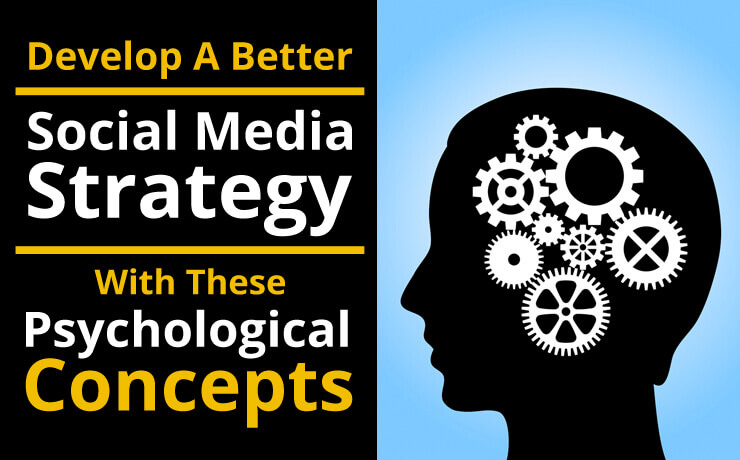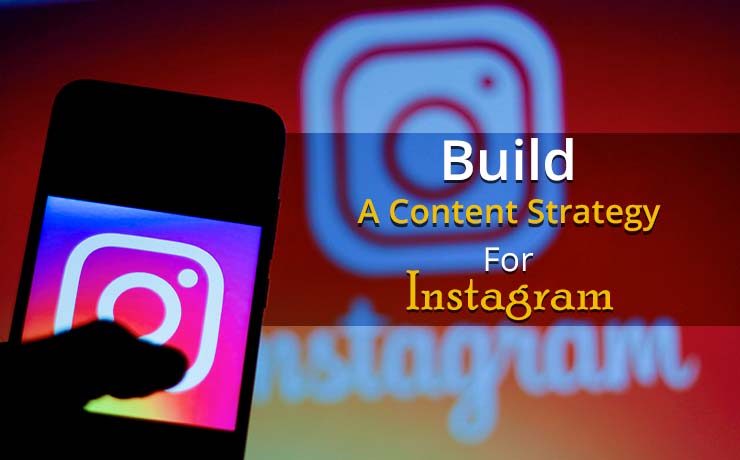Develop A Better Social Media Strategy With These Psychological Concepts

Chad Faith
Director of Content

Truth be told, social media is definitely altering more than just our immediate behavior. It’s no longer just about checking one’s phone for updates and merely replying to your target audience – whether on Instagram, Facebook or Snapchat. That’s barely scratching the surface. It is pertinent that you start thinking about the factors that influence your potential customer’s both conscious and unconscious perception of your company or brand when they interact with it on social media. You should be aware of how these interactions fully play out, and to what extent it will help your SEO too.
Boost Your Social Media Strategy with Psychological Concepts
There is a lot going on inside the minds of individuals who follow your brand, explore and engage with your content on social media. Hence, it’s not surprising that psychological concepts can apply to the development of effective social media strategies. Wondering how you can develop or improve your social media strategy? Think about these three psychological concepts:
Concept #1: Status Anxiety
Each individual has a certain level of status anxiety. For example, some want to feel desired on social media while other want to be perceived highly. There are people out there who also want to be thought of as humorous, attractive and intelligent. By now, you might already agree that everyone wants to be “liked” on social media. If you want to grow your followers and likes, you should keep in mind that engagement is a two-way street. For example, you have to ‘like’ people back if they ‘like’ you.
The goal is to make your audience feel great about their interactions with your company. ‘Liking’ doesn’t always apply so you have to find ways to place your target audience on the pedestal. You may give the Most Valuable Players of your social media audience exclusive invites, shout-outs or anything of value that can be shared with their followers.
Concept #2: Fear of Missing Out (FOMO)
Whether your brand is on Facebook, Twitter or Instagram, your social media strategy should involve tapping into the psychological FOMO of your audience to suggest that they are at a disadvantage if they:
- Don’t check out your newly launched Magento website
- Don’t attend your webinar
- Don’t buy your products
Your social media game should be so strong that a quick scroll through your social media feed triggers this type of anxiety in your audience; the fear of committing one of the ‘Don’ts’ above and missing out on an awesome incentive. While you develop strategies that can spark a little jealousy and anxiety to establish a connection with your target audience, remember keep things friendly!
Concept #3: Neuroplasticity
Our brains are constantly changing its responses and behavior to stimuli based on new experiences. With social media, the human brain is becoming even more adaptable. Neuroplasticity perfectly sums up this type of evolution. For starters, new social media content is being delivered at a rapid rate across various platforms and devices. This has caused our attention spans to become increasingly divided. In fact, many people tend to lose concentration in less than ten seconds! That’s why you need start delivering bolder, digestible content.
In today’s time, we have a society of full of multitaskers. Somehow social media-goers have found a way to train their brains to switch gears at an instant. That’s why you are recommended to plan, design and create multi-channel marketing experiences for your target audience. There has never been a better time to develop a social media strategy that spans across multiple platforms to stay favored with your consumers than now!
 Free
Consultation
Free
Consultation Free
Google Ads Audit
Free
Google Ads Audit







